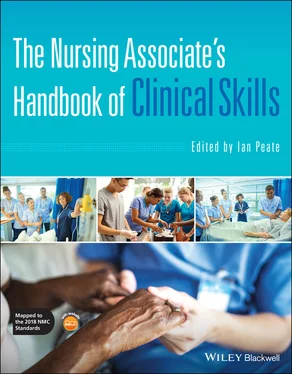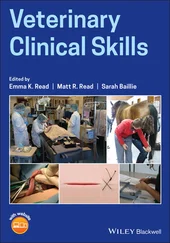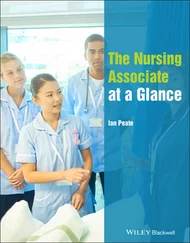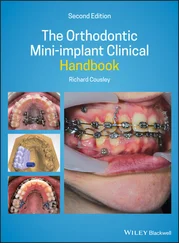 There are a number of factors that might prevent people from raising concerns or making complaints about the standard of care that they or a loved one have received. Fear of causing a fuss or being seen as a troublemaker is the most commonly cited reason.
There are a number of factors that might prevent people from raising concerns or making complaints about the standard of care that they or a loved one have received. Fear of causing a fuss or being seen as a troublemaker is the most commonly cited reason.
Complaints made about services or the care provided by the NHS can be dealt with locally or, if appropriate, can go through various processes to ensure that the patient’s complaint is addressed fairly and fully. The nursing associate should always seek advice when providing the patient with details concerned with making a complaint, as it can be a long and complex process for all parties.
Despite attempting to maintain open, honest and effective communication, complaints can and do occur. Many complaints are associated with poor communications. Complaints can vary in severity from displeasure about the cleanliness of toilets to allegations of professional misconduct. If complaints do occur, they are dealt with (when appropriate) at a local level adhering to local policy. The NHS complaints procedure can be used to help arrive at a satisfactory explanation of the cause of the complaint. The overall aim is to address the complaint speedily and efficiently, courteously and considerately. The nursing associate should always seek advice when a complaint has been made, as it can be a complex process for all concerned.
Compliments are also received by the nursing associate from patients and families. If gifts are given, the principle is not that the nurse must never receive gifts or favours; they should never be understood as being given by the patient to the nursing associate in return for preferential treatment.
1 Department of Health. (2000) The NHS plan: a plan for investment, a plan for reform, London: DH.
2 Department of Health and Social Care. (2015) The NHS constitution, The NHS belongs to us all. [online] Available: https://assets.publishing.service.gov.uk/government/uploads/system/uploads/attachment_data/file/480482/NHS_Constitution_WEB.pdf. Accessed August 2020.
3 NHS England. (2017a) Managing conflicts of interest in the NHS, Guidance for staff and organisations. [online] Available: https://www.england.nhs.uk/wp‐content/uploads/2017/02/guidance‐managing‐conflicts‐of‐interest‐nhs.pdf. Accessed August 2020.
4 NHS England. (2017b) NHS England complaints policy. [online] Available: https://www.england.nhs.uk/wp‐content/uploads/2016/07/nhse‐complaints‐policy‐june‐2017.pdf. Accessed August 2020.
5 NHS England. (2018) Ask, listen, do. [online] Available: https://www.england.nhs.uk/learning‐disabilities/about/ask‐listen‐do/. Accessed August 2020.
6 NHS Digital. (2018) Data on written complaints in the NHS ‐ 2017‐18 [PAS]. [online] Available: https://digital.nhs.uk/data‐and‐information/publications/statistical/data‐on‐written‐complaints‐in‐the‐nhs/2017‐18. Accessed August 2020.
7 Nursing and Midwifery Council. (2018a) The code, Professional standards of practice and behaviour for nurses, midwives and nursing associates. [online] Available: https://www.nmc.org.uk/globalassets/sitedocuments/nmc‐publications/nmc‐code.pdf. Accessed August 2020.
8 Nursing and Midwifery Council. (2018b) Standards of proficiency for nursing associates. [online] Available: https://www.nmc.org.uk/standards/standards‐for‐nursing‐associates/standards‐of‐proficiency‐for‐nursing‐associates/. Accessed August 2020.
9 Nursing and Midwifery Council. (2019) Revalidation. [online] Available: https://www.nmc.org.uk/globalassets/sitedocuments/revalidation/how‐to‐revalidate‐booklet.pdf. Accessed August 2020.
Конец ознакомительного фрагмента.
Текст предоставлен ООО «ЛитРес».
Прочитайте эту книгу целиком, купив полную легальную версию на ЛитРес.
Безопасно оплатить книгу можно банковской картой Visa, MasterCard, Maestro, со счета мобильного телефона, с платежного терминала, в салоне МТС или Связной, через PayPal, WebMoney, Яндекс.Деньги, QIWI Кошелек, бонусными картами или другим удобным Вам способом.

 There are a number of factors that might prevent people from raising concerns or making complaints about the standard of care that they or a loved one have received. Fear of causing a fuss or being seen as a troublemaker is the most commonly cited reason.
There are a number of factors that might prevent people from raising concerns or making complaints about the standard of care that they or a loved one have received. Fear of causing a fuss or being seen as a troublemaker is the most commonly cited reason.










